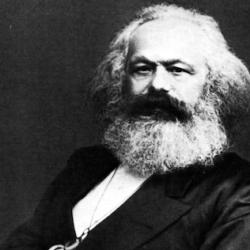In his Criticism of Heaven, Roland Boer lays out a taxonomy of how Marxism has related to the Bible. There are three categories: biblical Marxism, Catholic Marxism, and the “Protestant turn.”
In the first category are Marxists like Ernst Block and Walter Benjamin who interact with Christianity primarily by attention to the Bible. “Catholic” Marxists are thinkers like Althusser, Lefebvre, Gramsci, and Eagleton who either worked in Catholic countries or were themselves Catholics.
The Protestant turn is more recent: “In Slavoj Žižek, we find a move from a distinctly Roman-Catholic emphasis on ethics to a Protestant concern with grace, particularly in the effort to develop a materialist theory of grace. . . . Adorno also appears in this section, for not only is the Lutheran context of Germany significant, but his most sustained theological work engages with the one who is perhaps still the leading Lutheran philosopher, Kierkegaard.”
The apostle Paul looms large for the “Protestant” Marxists. Boer argues that Paul enables Zizek to be the sort of Marxist-Leninist that he is: “[Alain] Badiou’s charge that psychoanalysis cannot give us any political position. While Žižek initially attempts to answer the charge in psychoanalytic terms, by the time of The Fragile Absolute (2000), he changes direction and moves through Paul to a more distinctly political position.”















